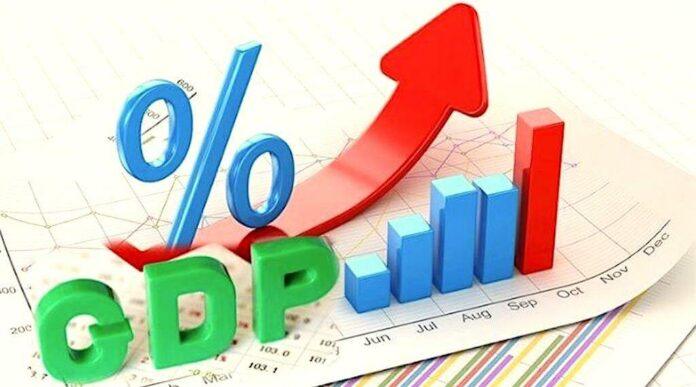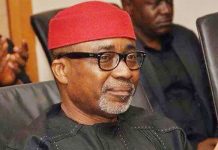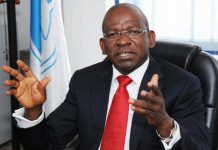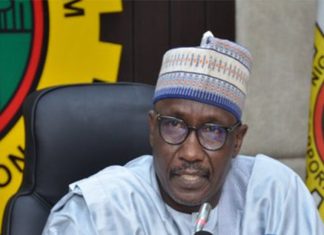The International Monetary Fund’s (IMF) updated forecast for Nigeria’s GDP growth rate, which was raised to 3.4 percent, has been characterized as one that might encourage public investment, jobs, and incomes.
Despite continuing reforms and increasing macroeconomic indicators, the updated figure represents a favorable evaluation of Nigeria’s economic prospects, even though it still falls short of United Capital Research’s forecast of 4.1 percent.
A Confidence Boost
“The IMF’s upward revision is a vote of confidence in the economic reforms pursued by the administration of President Bola Tinubu and Central Bank Governor Olayemi Cardoso,” according to analysts at United Capital Research.
“These reforms have been difficult, but they are now starting to produce small macroeconomic benefits, ranging from the removal of fuel subsidies to the liberalization of foreign exchange.”
This improved prognosis, the analysts say, might spur deeper investor interest, especially from foreign portfolio investors (FPIs) and foreign direct investors (FDIs).
According to economists, Nigeria’s financial markets are already showing more propulsion, with foreign inflows bolstering higher values for government assets and stocks.
In light of lower risk premiums, rates on Nigerian Treasury Bills (NTBs) and bonds are anticipated to decrease as market sentiment improves.
Naira Strengthening
The foreign exchange market could be another advantage of the IMF modification. Naira volatility has been a problem for Nigeria in recent years, but greater capital inflows and confidence about economic growth could stabilize the naira.
The local currency may end 2025 between N1,490 and N1,520 to the US dollar, according to United Capital Research’s forecast. This is a greater estimate than previous estimates that put it over N1,600/$1.
All sectors of the economy would benefit from a more stable or rising naira. Import prices would drop, which would ease inflationary pressures on consumer products, factory inputs, and medications, to start.
Better profit margins for businesses in import-dependent industries and more stable prices for consumers may follow from this.
Rewards for Regular Nigerians
For ordinary Nigerians, the updated growth prediction has great potential, regardless of market performance and investor confidence.
A spike in activity is anticipated in industries like manufacturing, services, and agriculture as GDP growth picks up speed.
The researchers predicted that this would boost company growth and raise labor demand, which would result in more jobs and greater household incomes.
Moreover, banks might be more inclined to lend to consumers and small enterprises as they react to better macroeconomic circumstances and a more stable investment climate.
This has the potential to improve access to financing for consumer credit, housing, and entrepreneurship—areas that have historically experienced severe credit constraints in Nigeria.
In addition to increasing government tax collections, increased economic activity would eliminate the need to raise tax rates.
This creates opportunities for increased public spending on vital sectors like infrastructure, healthcare, and education—improvements that have a direct impact on productivity and quality of life.
Corporate Nigeria Could Benefit
Additionally, the improved outlook is expected to help the private sector. A direct benefit is the possibility of lower borrowing costs.
As opinions about Nigeria’s risk level decrease, local businesses might be able to get financing at more affordable rates.
This is especially crucial for sectors that require a lot of capital, like manufacturing, telecom, and construction.
More macroeconomic predictability may also give businesses the confidence to invest for the long run.
Agro-processing, finance, and renewable energy are already grabbing the interest of investors.
In a growth-friendly atmosphere, companies might be more inclined to explore underserved markets, launch new product lines, and increase production capacity.
Should the naira strengthen as anticipated, businesses that depend on imported raw materials, like those in manufacturing, retail, and pharmaceuticals, would see a drop in operating expenses. Better pricing tactics, more competition, and more profits might all be made possible by this cost efficiency.
The Warnings: Things That Need to Be Adjusted
Although the predictions are hopeful, experts caution that overcoming some of Nigeria’s most obstinate structural issues is necessary to fully realize this economic potential.
The main one is insecurity, particularly in areas that produce food. Northern Nigeria is plagued by ongoing banditry and violence, which hinders rural development, raises food costs, and disrupts agricultural output.
One further significant obstacle is the electricity sector.
Stephen Iloba asserts that “power shortages continue to be a major drag on economic performance.” In order to increase output and lower operating costs, United Capital Research states that it will be essential to settle the sector’s legacy debts, particularly those due to independent power producers and gas suppliers.
Read Also: Court Ruling Permitting Skirts for Female Corps Members Sparks Mixed Reactions Nationwide
Although changes are in place, they need to be expanded in the oil and gas industry. Despite being a significant milestone, the Petroleum Industry Act’s (PIA) implementation has been slow.
Nigeria’s enormous hydrocarbon potential will need to be fully realized by addressing regulatory ambiguity, encouraging openness, and drawing in new investment for upstream and midstream operations.
The Way Ahead
Analysts predict Nigeria might expand by more than 4.1 percent in 2025 and provide the groundwork for double-digit growth in the medium run if these structural impediments are successfully removed.
By doing this, the nation’s current economic stagnation would be historically reversed, and it would begin its journey toward long-term prosperity.
Continued momentum of existing improvements is also vital. Despite a slow decline, inflation is still high.
Exchange rate policies nevertheless need to be consistent and clear, despite their improvement. Additionally, the government must be cautious when it comes to debt buildup, making sure that fresh borrowings are directed toward initiatives that would boost growth rather than ongoing expenses.
A positive indication is Nigeria’s predicted increase in GDP growth. A stronger reform narrative, better global perceptions, and a slow resurgence of investor interest are all reflected in it.
The task is far from over, though. Transforming this prediction into real benefits for the populace will need political will, strict adherence to policy, and consistent reform implementation.
All eyes will be on Nigeria as it capitalizes on this chance as 2025 goes on. If properly handled, this might be the start of a new era, one in which Africa’s most populous country turns economic expansion into tangible, extensive development.
Join Television Nigerian Whatsapp Now
Join Television Nigerian Facebook Now
Join Television Nigerian Twitter Now
Join Television Nigerian YouTUbe Now





